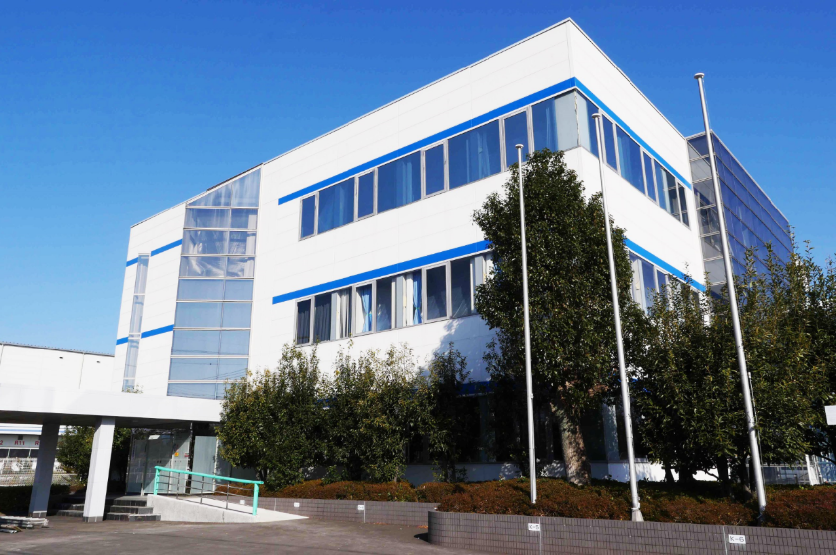Text begins from here.
Panasonic to Establish an IAQ Verification Center for Verifying the Effects of Hypochlorous Acid in Actual Use Environments
-Industry's first(*1) Biosafety Level 2 laboratory is capable of controlling the temperature and humidity as well as the concentration of gaseous hypochlorous acid
-It is also the industry's first(*2) verification facility with test rooms adjustable in size from 10 to 132 m2 as well as temperature and humidity

IAQ Verification Center
Panasonic Ecology Systems Co., Ltd. will establish IAQ (*3) Verification Center in Kasugai City, Aichi Prefecture, home to the brand's manufacturing and development base for air quality-related devices , to verify the effectiveness of hypochlorous acid. The center in central Japan, to be built with an investment of about 1.4 billion yen, will begin operations in April 2022.
In recent years, interest in better air quality through measures including disinfection and ventilation has been growing around the world, resulting in increasing demand for indoor air quality-related devices. Panasonic has been focusing on the strong disinfecting and deodorizing capabilities of hypochlorous acid and verifying the acid's various effects in cooperation with external organizations. The company has also been providing indoor air quality-related devices utilizing hypochlorous acid.
This time, the company has decided to establish the IAQ Verification Center in order to advance the research on hypochlorous acid and perform a high-level verification of its effects and safety. This center will be established in a renovated building in Kasugai City that was previously used for business operations. The three-story center with a gross floor area of 3,422 m2 built on a site area of 2,033 m2 will be equipped with a variety of verification rooms such as the industry's first(*4) Biosafety Level 2 laboratory, which is capable of controlling the temperature and humidity as well as the concentration of gaseous hypochlorous acid. The center will also include a disinfection test room that is adjustable in size from 10 to 132m2 to simulate actual usage environments, and air quality and ventilation verification rooms.
The center will allow more advanced verification of the effects of hypochlorous acid, including those in an actual use space and airborne bacteria inhibition effects, which could not be verified previously. Thus the new center will expand the potential of hypochlorous acid. Moreover, the center will be utilized as a verification facility to collaborate with external research organizations.
With the establishment of the IAQ Verification Center, Panasonic will enhance its hypochlorous acid technology and contribute to the further improvement of indoor air quality.
Overview of the IAQ Verification Center
-Location: 4017 Shimonakata, Kasugai City, Aichi Prefecture, Japan
-Site area: 2,033 m2
-Gross floor area: 3,422 m2
-Investment amount: Approximately 1.4 billion yen
Verification facilities
1. Industry's first(*1) Biosafety Level 2 laboratory capable of controlling the temperature and humidity as well as the concentration of gaseous hypochlorous acid
This is a Biosafety Level 2 facility capable of controlling the temperature and humidity as well as the concentration of gaseous hypochlorous acid, enabling the measurement of disinfecting effects on aerosol (airborne bacteria) and the fundamental evaluation of actual environmental impacts. The center provides two rooms with the same equipment to enable various tests, including comparative testing with different test conditions and concurrent testing with and without the use of hypochlorous acid.
2. Industry's first(*2) laboratories for verifying disinfection in an actual use space with adjustable temperature and humidity settings in a changeable 10 ~ 132 m2-sized space
This facility simulates an actual use space adjustable to 10 to 132 m2 in size for performing disinfecting and deodorizing tests (adhered bacteria inhibition, space odor deodorization, and adhering odor deodorization). Indoor and outdoor temperature and humidity can be set according to test requirements, thus enabling highly accurate testing without being affected by external conditions.
3. Air quality and ventilation verification rooms to evaluate various equipment in an environment close to actual installation conditions
This is a facility for evaluating whole house air conditioning system with energy recovery ventilator and hypochlorous acid air treatment unit in environments close to the actual installation conditions. It is equipped with a thermos-hygrostat chamber that incorporates experimental housing with freely configurable floor plans without any restrictions to simulate, for example, a single-family house, condominium and non-residential space. This allows IAQ-related evaluations to be performed under different outside temperature and humidity conditions.
Notes:
*1: As a Biosafety Level 2 facility capable of controlling the indoor temperature, humidity, and concentration of gaseous hypochlorous acid in the air conditioning and ventilation industry in Japan (As of January 12, 2022, according to Panasonic data)
*2: As a facility capable of controlling the indoor and outdoor temperature and humidity and adjusting the size of the test space to approximately 10 to 132 m2 in the air conditioning and ventilation industry in Japan (As of January 12, 2022, according to Panasonic data)
*3: Indoor Air Quality
*4: It is an experimental facility that deals with bacteria and viruses, and it is classified into 4 stages from 1 to 4 according to the degree of risk of viruses and bacteria handled. 4 is the strictest standard. Level 2 is safe enough to handle measles and influenza viruses for general medical, diagnostic, laboratory, and research purposes.
Sub Menu begins from here.